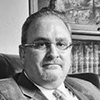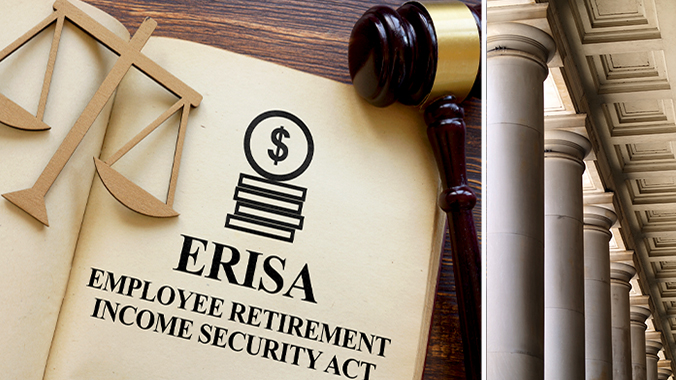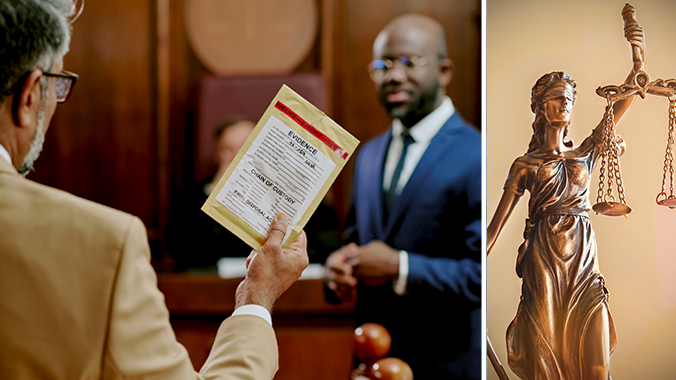Fall 2025 National Conference – Track I (Presented by National Organization of Social Security Claimants’ Representatives)
















13.5 hour CLE
Get this course, plus over 1,000+ live webinars.
Learn More
Program Summary
Join us September 9-12, 2025, for an in-depth, dynamic learning experience designed to keep you, connected, and up to date in your Social Security disability practice.
What We Offer: Continuing education sessions led by experienced, well-versed professionals and peers Legal, policy, and advocacy updates that directly impact your work.
Key Topics
- Cross-Examining Vocational Experts the 24 3p Way
- Build Your Own “World Class” Physician Source Statements
- Think Outside the Medical Record Box—The E Section and Other Evidence
- Effectively Using the Vocational Data in Rebutting Vocational Nonsense
- Ethics and Fees -- How and Why They Interact
- Using Your Creativity to Win More Cases and Enhance Every Aspect of Your Practice
- From Trenches to Tech: Practical AI Workflows for SSD
- Using Medical Evidence for Effective VE Cross-Examination
- Reimagining Law Firm Efficiency with AI
- Writing Effective and Winning Briefs
- SSR 24-3p and the Future of Step 5: The Growing Threat to Fair Adjudication
- The Accurate and Logical Bridge
- DOT v. SOC v. ORS: Older v. Newer v. Newest: Unique Contributions, Concepts, and Conflicts
This course is co-sponsored with myLawCLE.
![]() Closed-captioning available
Closed-captioning available
Speakers
 Abraham Arnold | Marvin & Associates, P.C.
Abraham Arnold | Marvin & Associates, P.C.
Abraham Arnold has been with Marvin and Associates, formerly the Law Offices of Barry Schultz, since 2012. He currently manages the firm’s hearing level practice focusing on not only getting benefits for his clients, but creating strong appealable records for court through cross examination and creative argument.
 Joshua W. Potter | Potter Padilla & Pfau
Joshua W. Potter | Potter Padilla & Pfau
Joshua Potter has 45 years’ experience representing claimants from initial applications through the 9th Circuit. Prior to COVID he was a regular speaker at NOSSCR Conferences. He is a graduate of the University of London, UCLA and Lavern College of College of Law.
 Kevin S. Kerr | Kerr Robichaux and Carroll Law Office
Kevin S. Kerr | Kerr Robichaux and Carroll Law Office
Kevin S. Kerr has practiced in the area of Social Security Disability law since 2009 and is the senior partner at Kerr Robichaux and Carroll Law Office, which represents Claimants at all levels throughout the western states. He has personally appeared at over three thousand Social Security Administrative Law Judge hearings and has handled hundreds of appeals to Federal Court in Oregon and Washington and the Ninth Circuit. He also represents Veterans and is a member of the National Organization of Veterans’ Advocates. Kevin is a NOSSCR Board Member representing the Ninth Circuit and this is his eight time presenting at the NOSSCR Conference with his partner, Sara Rose Carroll.
 Sara R. Carroll | Kerr Robichaux and Carroll Law Office
Sara R. Carroll | Kerr Robichaux and Carroll Law Office
Sara Rose Carroll has been a partner at Kerr Robichaux & Carroll since 2018. In addition to having repped thousands of clients at hearing, Sara has been instrumental in developing her firm’s system of operations for handling claims start to finish. This year’s topic is of special interest to her because she believes it is critical that representatives develop rigorous practices on the back-end. Clients endure incredibly long wait times and an extremely invasive process while pursing Social Security benefits. We must remain vigilant to ensure there are no slip-ups in the final stretch towards getting clients the benefits they deserve.
 Lawrence D. Rohlfing | Law Offices of Lawrence D. Rohlfing, Inc
Lawrence D. Rohlfing | Law Offices of Lawrence D. Rohlfing, Inc
Lawrence D. Rohlfing has practiced disability law since 1985. He represents the disabled and seeks to enforce their rights before the Social Security Administration, the United States District Courts, the United States Courts of Appeal, and the United States Supreme Court. Having been involved in thousands of disability claims and training of other lawyers, he brings considerable experience and expertise to the representation of disability claims under Social Security and ERISA.
Mr. Rohlfing has argued disability and other benefit entitlement claims in over a hundred claims before the Ninth and Tenth Circuit Courts of Appeals and lapsed to the Eleventh Circuit Court of Appeals. He presented briefs in three cases to the United States Supreme Court. Mr. Rohlfing argued Black & Decker Disability Plan v. Nord to the United States Supreme Court in April 2003.
Mr. Rohlfing is a sustaining member of the National Organization of Social Security Claimants’ Representatives (NOSSCR). He has served as a Ninth Circuit Representative to the NOSSCR Board of Directors and Secretary, Treasurer, Vice President, and President of NOSSCR as well as a past president delegate to the Board of Directions. Mr. Rohlfing is the past chair of the Los Angeles County Bar Association Social Security Section. Mr. Rohlfing has presented numerous papers to bi-annual meetings of NOSSCR, the Los Angeles County Bar Association Social Security Section, the Beverly Hills Bar Association, the Southeast Bar Association of Los Angeles County, and the National Business Institute.
Mr. Rohlfing graduated from Whittier College in 1982. He graduated from Whittier Law School in 1985 cum laude. He was named as the Whittier Law School attorney of the year in 2016 and the Southeast Bar Association attorney of the year in 2017.
He is the proud father of seven children with his wife Maggie. Larry and Maggie currently have 12 grandchildren with plans to conquer the world. He was involved in the community managing baseball and softball teams, coaching football, and currently serving as the elder of La Habra Christian Church.
 Russell Rohlfing
Russell Rohlfing
Russell Rohlfing is a recent graduate with honor from the University of Wyoming College of Law in May 2024. Russell attended law school while simultaneously devoting about 20 hours per week as a graduate assistant wrestling coach to the University wresting team and writing appellate briefs in his spare time.
 Miles Mitzner | Mitzner Law Firm
Miles Mitzner | Mitzner Law Firm
Miles L. Mitzner is a 40 year practitioner who has completed over 40,000 hearings and is a regular speaker for bar associations in Oklahoma, Texas and Kansas as well as NOSSCR.
 Nick Coleman
Nick Coleman
A lifelong Arkansan, Nick remains deeply connected to his roots. He continually learns from clients and colleagues, applying these insights to address legal field challenges through technology.
 George Piemonte | Martin, Jones & Piemonte
George Piemonte | Martin, Jones & Piemonte
George has practiced law since 1987 and is admitted in North Carolina and Georgia. Since 1995, he has focused his practice on Social Security Disability and Veterans Disability. George is admitted to all courts of the State of North Carolina; the Superior Court of Georgia; the Western, Middle, and Eastern District Courts of North Carolina; the Northern, Middle, and Southern Districts Courts of Georgia; the Northern, Eastern, Southern, and Western Districts of Texas; the District of Colorado; the Eastern District of Wisconsin; the 4th, 6th, and 11th Circuit Courts of Appeal; the Court of Appeals for Veterans Claims; and the United States Supreme Court. He is a sustaining member of NOSSCR, the North Carolina Bar Association, and the North Carolina Advocates for Justice. He frequently speaks at NOSSCR conferences and other national and local CLE programs.
 Jonathan Heeps | Martin, Jones & Piemonte
Jonathan Heeps | Martin, Jones & Piemonte
Jonathan Heeps graduated from Texas Wesleyan University with a Bachelor of Business Administration in 2006 and received his Juris Doctor from Suffolk University Law School in 2010.
He is licensed to practice law in Texas. He is a sustaining member of NOSSCR. He has represented claimants in over 1,500 disability hearings. Jonathan has exclusively practiced Social Security Disability since 2010. He is admitted to the Northern, Southern, Eastern, and Western District Courts of Texas and the Fifth Circuit Court of Appeals.
 Kate Bell
Kate Bell
Kate is a seasoned professional in the Legal Tech industry, on a mission to transform how law firms do business and deliver value. From her years of hands-on experience as the office manager of a non-profit law firm to then consulting with law firms across North America to streamline their practices, Kate has honed her skills in identifying inefficiencies and addressing pain points within the law firm landscape. She’s all about turning challenges into opportunities, building bold partnerships, and helping law firms break through the status quo to drive real, lasting change. Kate believes the future of law is about innovation, access, human connection, and a great tech stack.
 Michael T. Kelly | Morgan Weisbrod
Michael T. Kelly | Morgan Weisbrod
Michael T. Kelly has represented claimants before the Social Security Administration since 1990. He began his legal career in a general practice firm in 1988, representing clients in various state-related matters. Mr. Kelly opened his own private law practice in 1994 where over 90% of his business was representing claimants before the Social Security Administration. He has personally conducted hundreds of hearings representing claimants at the administrative levels and has handled federal court Social Security appeals for claimants and other experienced attorneys. Mr. Kelly is a member of NOSSCR and Board Certified in Social Security Disability Advocacy.
 Meghan M. Gallo | GCC Law Firm
Meghan M. Gallo | GCC Law Firm
Meghan Gallo is a dedicated regional attorney at GCC Law firm in Rogers, Arkansas, with a practice extending across states in the Midwest and the South. With 15 years of experience, Meghan specializes in representing disabled individuals before the Social Security Administration and in Federal Court. She earned her undergraduate business degree from the University of Arizona’s Eller College of Management before moving to Arkansas to attend the University of Arkansas School of Law. There, she excelled academically, making the Dean’s List and earning her Juris Doctorate in 2010.
Meghan’s practice is defined by her unwavering commitment to advocating for the rights of the disabled. Her dedication to taking on complex legal challenges is exemplified by her vigorous efforts to address vocational expert issues, where she has fought tirelessly to ensure that her clients receive fair treatment under the law. Meghan’s determination to navigate and resolve intricate legal matters showcases her zeal as an advocate for those she represents.
In addition to her legal work, Meghan is also a proud parent of a disabled child, providing her with valuable insights into the intricacies of living with a disability. This personal experience, combined with her professional expertise, strengthens her resolve to fight for the rights and well-being of her clients.
Outside of her legal practice, Meghan is an accomplished outdoors enthusiast. She has been granted a fellowship in the Cave Research Foundation, reflecting her deep passion for exploration and discovery. Meghan and her family reside in Rogers, Arkansas, where she and her family enjoy caving and exploring the natural beauty of the region.
 Rob Wendt | National Organization of Social Security Claimants’ Representatives
Rob Wendt | National Organization of Social Security Claimants’ Representatives
Rob is a board-certified specialist in Social Security Disability law through the National Board of Trial Advocacy (NBTA). In over 40 years of practice in Charleston, Rob has handled thousands of federal administrative law judge hearings and hundreds of federal court appeals representing disability claimants across the state of South Carolina.
Currently, Rob is an officer and Fourth Circuit board member of the National Organization of Social Security Claimants’ Representatives (NOSSCR) and is a board member of the NBTA and its Social Security Disability Specialty Commission and exam committee. Rob is a frequent presenter and moderator in continuing legal education seminars on Social Security disability practice.
Rob has been a leader in the Social Security Disability bar at the state and national levels, including service as a board member and chair of the South Carolina Association for Justice (SCAJ) Social Security Law Section, founding member and chair of the American Association for Justice (AAJ) Social Security Disability Law Section, and board member of the SC Chapter of the Federal Bar Association.
 Sarah Bohr
Sarah Bohr
Sarah H. Bohr has specialized in Social Security law for over 40 years and writes winning briefs for filing in Social Security federal court cases in the district courts in nearly half of the states as well as most circuit courts of appeal. Sarah is most proud of her successful argument before the Supreme Court in Sims v. Apfel, 530 U.S. 103 (2000), which turned out to be instrumental to the success of her career as it allows her to approach each federal appeal as a puzzle and to figure out the best issues to raise.
She also successfully recently worked on three key published Social Security cases addressing depression in Simon v. Comm’r, 7 F.4th 1094 (11th Cir. 2021) and Shelley C. v. Comm’r of Soc. Sec. Admin., 61 F.4th 341 (4th Cir. 2023) and addressing fibromyalgia in Arakas v. Comm’r, Soc. Sec. Admin., 983 F.3d 83 (4th Cir. 2020).
 Jeff Truthan
Jeff Truthan
Jeff Truthan, MS in Rehabilitation Counseling and a Certified Vocational Evaluator, brings extensive experience interpreting occupational data for disability claims. His session will help you understand the value, and limitations, of each classification system, so you can use them strategically in your practice.
Agenda
TRACK I
DAY 1: TUESDAY, SEPTEMBER 9
Cross-Examining Vocational Experts the 24-3p Way | 5:00pm – 6:00pm
SSR 24-3p requires representative “to raise any relevant questions or challenges about the VE’s testimony at the time of the hearing.” In addition, “VEs may provide evidence based on their professional experience and any reliable source of occupational information that is commonly used in the vocational profession and relevant under our rules.” This session will go over what kinds of questions every representative should be raising at each hearing to not only comply with 24-3p but also set their case up to win or for an easy appeal.
Abraham Arnold, Associate, Marvin & Associates, P.C.
Break | 6:00pm – 6:30pm
Build Your Own “World Class” Physician Source Statements | 6:30pm – 7:30pm
Use the Appendix 1 criteria and Rulings to make bullet proof Physician’s Source Statements. From books are nice, but we can do better. Even if your judge doesn’t recognize where the language comes from, The Appeals Council does. This will be fun with audience participation and a toolbox to make your own “world class” forms.
Joshua W. Potter, Managing Partner, Potter Padilla & Pfau
Break | 7:30pm – 7:45pm
Think Outside the Medical Record Box—The E-Section and Other Evidence | 7:45pm – 8:45pm
This session will discuss basic rules evidence and other or non-medical evidence such as explaining alleged onset dates, establishing listings, symptom tracking, documenting limitations and VE rebuttal evidence.
Kevin S. Kerr, Senior Partner, Kerr Robichaux and Carroll Law Office
Sara R. Carroll, Partner, Kerr Robichaux and Carroll Law Office
DAY 2: WEDNESDAY, SEPTEMBER 10
Effectively Using the Vocational Data in Rebutting Vocational Nonsense | 4:30pm – 6:00pm
Effectively Use the Vocational Data in Rebutting Vocational Nonsense – in the age of SSR 24-3p, simple use of the DOT/SCO is not enough. This session explores the range of data and the uses of that data to rebut witness testimony.
Lawrence Rohlfing, Proprietor, Law Offices of Lawrence D. Rohlfing, Inc.
Russell Rohlfing
DAY 3: THURSDAY, SEPTEMBER 11
Ethics and Fees—How and Why They Interact | 12:00pm – 1:00pm
Explore the reasons why fees are regulated, the HALLEX and POMS provisions relevant to fees as well as the ethical issues in charging and receiving fees.
Lawrence Rohlfing, Proprietor, Law Offices of Lawrence D. Rohlfing, Inc.
Russell Rohlfing
Break | 1:00pm – 1:15pm
Using Your Creativity to Win More Cases and Enhance Every Aspect of Your Practice | 1:15pm – 2:15pm
Your creativity can help you win more cases with low-paying judges; it can improve your cross-examination of the VE and ME; it can help you make the difficult client a pleasure to your staff. Creativity can improve hearing prep and the questions you ask your client. Thinking creatively can increase physician and client referrals.
Your creativity, when used properly, can bring excitement back to your practice.
Jim Brown
Break | 2:15pm – 2:30pm
From Trenches to Tech: Practical AI Workflows for SSD | 2:30pm – 3:30pm
Join Nick Coleman, disability attorney turned legal tech founder, for a hands-on workshop demonstrating practical AI solutions born from real practice challenges. Drawing from a decade of disability law experience, Nick will showcase how attorneys can leverage AI to transform time-consuming tasks while maintaining quality representation.
Nick Coleman
Lunch | 3:30pm – 5:00pm
Using Medical Evidence for Effective VE Cross-Examination | 5:00pm – 6:00pm
This session will discuss strategies and tactics to cross-examine the VE based on medical testing and/or evidence in the record.
George Piemonte, Attorney, Martin, Jones & Piemonte
Jonathan Heeps, Attorney, Martin, Jones & Piemonte
Break | 6:00pm – 6:15pm
Reimagining Law Firm Efficiency with AI | 6:15pm – 7:15pm
This session will explore how to effectively and ethically integrate AI into your practice. We’ll go over practical strategies for streamlining operations, from client intake to communication, and discuss how AI can help your firm scale without losing the human touch. The presentation will also provide guidance on secure implementation to protect client data and ensure compliance, empowering you to adopt a human-first approach to AI.
Kate Bell
Break | 7:15pm – 7:30pm
Writing Effective and Winning Briefs | 7:30pm – 8:30pm
A clear, concise, honest, balanced, buttressed, convincing, and interesting legal writing session.
Jonathan Heeps, Attorney, Martin, Jones & Piemonte
Michael T. Kelly, Attorney, Morgan Weisbrod
DAY 4: FRIDAY, SEPTEMBER 12
SSR 24-3p and the Future of Step 5: The Growing Threat to Fair Adjudication | 11:30am – 12:30pm
The “simple probability method” of using ORS data and why it is insufficient (including a discussion of what are confidence intervals and how to spot misuse), ORS data limitations and why ONET is alive and well, conflating SVP with Skill level in the ORS, Reasoning level issues popping up (tentative), VW Qualifications and the Right to cross and rebut, discussing ALJs behaving badly and attempting to limit client DP rights under the new SSR on these matters. Rebuttal data (ONET, exposure of invalid CIs), the unconstitutionality of SSR 24-3p (mostly beyond the scope but things to have an awareness of).
Meghan Gallo, Attorney, GCC Law Firm
George Piemonte, Attorney, Martin, Jones & Piemonte
Break | 12:30pm – 12:45pm
The “Accurate and Logical Bridge” | 12:45pm – 1:45pm
This session will discuss how to challenge unfavorable Social Security disability decisions. It will explain the “logical bridge” principle, which requires Administrative Law Judges (ALJs) to clearly connect the evidence in the record to their conclusions. Originating from Seventh Circuit precedent (e.g., Sarchet v. Chater), this principle has been widely adopted by federal courts across all circuits. The authors stress that courts cannot uphold a decision—even if supported by some evidence if the ALJ fails to explain how the evidence logically supports their findings.
The bulk of the session documents are compiled of case law from every federal circuit where courts have remanded Social Security cases because ALJs failed to provide adequate reasoning. These cases show recurring errors such as:
- Ignoring or selectively citing evidence
- Failing to explain rejections of medical opinions
- Making conclusory credibility findings without support
- Not addressing conflicting or contrary evidence
The resources provide practitioners with citations and examples to argue for remand when ALJs do not build the required logical bridge. It emphasizes that the ALJ —not agency lawyers—must supply the reasoning, enabling meaningful judicial review.
Rob Wendt, National Organization of Social Security Claimants’ Representatives
Sarah Bohr
Break | 1:45pm – 2:00pm
DOT v. SOC v. ORS: Older v. Newer v. Newest: Unique Contributions, Concepts, and Conflicts | 2:00pm – 3:00pm
In this session, Jeff Truthan will explore how systems like the DOT, SOC, and ORS influence vocational opinions, where they overlap or conflict, and what that means for building strong disability cases.
This session reviews the critical features of each of these classification systems and their relative contribution to our knowledge about occupations. Each system contributes differently to the way in which a vocational opinion about employment can be formed. Some concepts are shared, yet others are unique. But ORS data is often incomplete, even for the most basic factors like Strength and SVP. So how does one navigate these shallow occupational waters to not run aground when the supporting data gets muddy?
Jeff Truthan
More CLE Webinars
Trending CLE Webinars







Upcoming CLE Webinars
































































